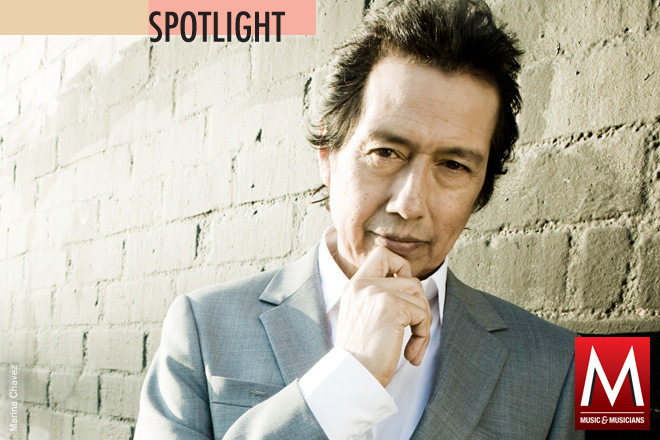ALEJANDRO ESCOVEDO
Finding himself again in songs about the mysteries of love
After releasing two intensely personal concept albums—2006’s The Boxing Mirror, about a near-fatal bout with hepatitis C, and 2008’s Real Animal, a detail-rich rock ’n’ roll memoir—Alejandro Escovedo needed a change. He and collaborator Chuck Prophet began writing what would become Street Songs of Love, Escovedo’s 10th solo album. What emerged was a record about love—finding it, losing it and untangling its mysteries. “As hard as I tried to get away from myself, this is probably the most autobiographical record of any that I’ve made,” Escovedo says.
“The most personal, anyway.” Escovedo reenlisted Real Animal producer Tony Visconti, best known for his work with David Bowie, to make an album that mixes Escovedo’s punk, country and roots-rock influences. We caught up with the Texas-born punk-turned-troubadour during a run of shows in New York City.
How did you approach the new album?
The idea was to have a record that was just a collection of songs, because after The Boxing Mirror and Real Animal, I was exhausted with talking about myself. I wanted to get on with it and make a record of good rock ’n’ roll songs. It became an album that was focused on songs of love. I was going through a breakup in the last year, and the songs took on a different quality altogether.
How was working with Tony again?
I knew right away if I had an opportunity to do it again, I would make another record with Tony. We struck up a very strong relationship all of a sudden, and I think it was just an easy, comfortable and inspiring place to be. What more could you ask for, as a writer and a musician? So it was perfect. If Tony was the only producer for me from now on, I’d be very happy with that.
You road-tested the new material. What effect did that have?
The live shows had lots to do with how the songs were shaped, how they were presented. I remember “Anchor,” the very first song on the record, was the very first song we played for the audience. I remember people trying to sing along with the chorus. They didn’t know the words. We didn’t know all the words yet, and yet they were trying to sing along. So that’s an incredible response, and obviously it means we’re onto something. That, in a sense, helped shape that song and helped solidify that song’s position on the record.
“Down in the Bowery” is about your son, Paris Diego, a punk-rock singer.
It’s funny, even though my son’s into punk rock, the real music he identifies with is hip-hop. And hip-hop has a real multicultural facet to it that’s really interesting, and the music really speaks to him. It’s a lot different now than when I was a kid. He loves graffiti. He’s a graffiti artist. When I go check out what he’s doing, there are all kinds of kids there: white kids, black kids, Chicano kids, Asian kids. They’re all into it. There’s this language they speak that’s a common denominator. But when I was growing up, we didn’t have that—even in rock ’n’ roll, we didn’t have that.
Would you encourage him to follow in your footsteps?
If someone is willing to really apply themselves, and it becomes their life. But unless you’re prepared to make it your life, I don’t know that it’s a great thing to dabble in. It’s a lot of hard work, and a lot of miles, a lot of disappointment—and triumphs. It’s not an easy suit to wear.
–Kenneth Partridge




comment closed